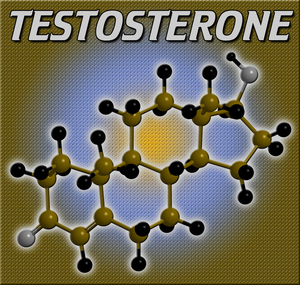Introduction to Chronic Kidney Disease and Testosterone
Chronic Kidney Disease (CKD) is a prevalent health concern among American men, often leading to a decline in overall quality of life and an increased risk of cardiovascular diseases. One of the lesser-known aspects of CKD is its association with hypogonadism, a condition characterized by low testosterone levels. Androgel, a topical testosterone gel, has emerged as a potential therapeutic agent in this context, offering hope for improved management of CKD symptoms and associated comorbidities.
Understanding Androgel and Its Mechanism
Androgel is a transdermal gel that delivers testosterone directly into the bloodstream through the skin. Its primary use has been in the treatment of hypogonadism, where it helps to restore testosterone levels to normal ranges. The gel's ease of application and consistent delivery of testosterone make it a convenient option for patients requiring hormone replacement therapy.
The Link Between CKD and Low Testosterone
Research has shown that men with CKD often experience a decline in testosterone levels, which can exacerbate symptoms such as fatigue, muscle weakness, and decreased libido. This hypogonadal state can further complicate the management of CKD, as low testosterone levels are associated with increased inflammation and cardiovascular risk, both of which are detrimental in the context of kidney disease.
Androgel's Role in CKD Management
Emerging studies suggest that Androgel may play a beneficial role in the management of CKD. By restoring testosterone levels, Androgel can potentially alleviate some of the symptoms associated with hypogonadism, such as fatigue and muscle weakness, thereby improving the overall quality of life for men with CKD. Moreover, testosterone replacement therapy has been linked to improved cardiovascular outcomes, which is particularly relevant for CKD patients who are at an elevated risk for heart disease.
Clinical Evidence Supporting Androgel Use in CKD
Several clinical trials have investigated the effects of testosterone replacement therapy, including Androgel, in men with CKD. These studies have reported improvements in muscle mass, strength, and overall well-being among participants. Additionally, some research has indicated that testosterone therapy may have a positive impact on kidney function, although more extensive studies are needed to confirm these findings.
Considerations and Precautions
While Androgel offers promising benefits for men with CKD, it is essential to consider the potential risks and side effects associated with testosterone replacement therapy. These may include skin irritation at the application site, increased risk of blood clots, and potential exacerbation of prostate conditions. Therefore, it is crucial for patients to undergo thorough medical evaluation and monitoring while using Androgel.
Integrating Androgel into CKD Treatment Plans
For American men with CKD and hypogonadism, Androgel may represent a valuable addition to their treatment regimen. Healthcare providers should consider the individual patient's medical history, current health status, and potential benefits and risks when deciding whether to incorporate Androgel into their CKD management plan. Close monitoring and regular follow-up are essential to ensure the safe and effective use of this therapy.
Conclusion: The Future of Androgel in CKD Management
As research continues to explore the relationship between testosterone levels and CKD, Androgel stands out as a promising tool in the holistic management of this condition. By addressing the symptoms of hypogonadism and potentially improving cardiovascular and kidney function, Androgel offers a multifaceted approach to enhancing the lives of American men with CKD. As with any medical treatment, the key lies in personalized care and ongoing research to maximize the benefits of Androgel while minimizing risks.
Contact Us Today For A Free Consultation

- Androgel: Enhancing Cognitive Function in American Men with Low Testosterone [Last Updated On: March 18th, 2025] [Originally Added On: March 18th, 2025]
- Androgel Therapy: Dispelling Myths and Enhancing Men's Health with Testosterone Replacement [Last Updated On: March 19th, 2025] [Originally Added On: March 19th, 2025]
- Androgel's Impact on Mood and Emotional Well-being in American Men [Last Updated On: March 19th, 2025] [Originally Added On: March 19th, 2025]
- Androgel's Impact on Skin Health and Aesthetics in American Men [Last Updated On: March 20th, 2025] [Originally Added On: March 20th, 2025]
- Economic Impact of Androgel: Costs, Coverage, and Long-Term Considerations in TRT [Last Updated On: March 20th, 2025] [Originally Added On: March 20th, 2025]
- Androgel: Enhancing Immune Health in American Men with Testosterone Therapy [Last Updated On: March 21st, 2025] [Originally Added On: March 21st, 2025]
- Androgel: A Promising Therapy for Chronic Pain in American Men with Low Testosterone [Last Updated On: March 21st, 2025] [Originally Added On: March 21st, 2025]
- Androgel: Enhancing Sleep Quality in American Men through Testosterone Therapy [Last Updated On: March 21st, 2025] [Originally Added On: March 21st, 2025]
- Androgel: Enhancing Life Quality for American Men with HIV/AIDS Through Testosterone Therapy [Last Updated On: March 21st, 2025] [Originally Added On: March 21st, 2025]
- Androgel: A Promising Treatment for Male Infertility in American Men [Last Updated On: March 21st, 2025] [Originally Added On: March 21st, 2025]
- Androgel: Benefits for Low Testosterone vs. Prostate Health Risks in American Men [Last Updated On: March 21st, 2025] [Originally Added On: March 21st, 2025]
- Androgel: Enhancing Vitality in Aging American Men Through Testosterone Therapy [Last Updated On: March 22nd, 2025] [Originally Added On: March 22nd, 2025]
- Androgel: Enhancing Weight Management Through Testosterone Therapy in American Men [Last Updated On: March 22nd, 2025] [Originally Added On: March 22nd, 2025]
- Maximizing Androgel Therapy: Diet, Exercise, Sleep, and Stress Management for American Men [Last Updated On: March 22nd, 2025] [Originally Added On: March 22nd, 2025]
- Androgel Use and Hearing Loss: Investigating the Potential Link in American Men [Last Updated On: March 22nd, 2025] [Originally Added On: March 22nd, 2025]
- Androgel: A Promising Treatment for Chronic Fatigue Syndrome in American Men [Last Updated On: March 23rd, 2025] [Originally Added On: March 23rd, 2025]
- Androgel Benefits and Hair Loss Risks: Management and Monitoring Strategies for Men [Last Updated On: March 23rd, 2025] [Originally Added On: March 23rd, 2025]
- Androgel Therapy: Balancing Benefits and Cardiovascular Risks in American Men [Last Updated On: March 23rd, 2025] [Originally Added On: March 23rd, 2025]
- Androgel in Sports Medicine: Enhancing Recovery and Bone Health in American Men [Last Updated On: March 24th, 2025] [Originally Added On: March 24th, 2025]
- Androgel: Benefits, Liver Risks, and Monitoring for American Men [Last Updated On: March 24th, 2025] [Originally Added On: March 24th, 2025]
- Androgel's Role in Managing Fibromyalgia Symptoms in American Men [Last Updated On: March 24th, 2025] [Originally Added On: March 24th, 2025]
- Androgel: Enhancing Respiratory Health in American Men with Asthma [Last Updated On: March 24th, 2025] [Originally Added On: March 24th, 2025]
- Androgel: A Vital Ally for American Men Facing Chemotherapy-Induced Hypogonadism [Last Updated On: March 24th, 2025] [Originally Added On: March 24th, 2025]
- Androgel Use and Hypertension: Monitoring and Management Strategies for Men [Last Updated On: March 25th, 2025] [Originally Added On: March 25th, 2025]
- Androgel: A Dual Benefit for American Men with Gout and Low Testosterone [Last Updated On: March 25th, 2025] [Originally Added On: March 25th, 2025]
- Androgel Use in Men: Impacts on Oral Health and Hygiene Practices [Last Updated On: March 25th, 2025] [Originally Added On: March 25th, 2025]
- Androgel's Potential Benefits on Digestive Health in American Men Explored [Last Updated On: March 25th, 2025] [Originally Added On: March 25th, 2025]
- Androgel: Boosting Testosterone to Combat Obesity in American Men [Last Updated On: March 25th, 2025] [Originally Added On: March 25th, 2025]
- Androgel: Enhancing Sleep and Testosterone in American Men [Last Updated On: March 25th, 2025] [Originally Added On: March 25th, 2025]
- Androgel: A Promising Solution for Arthritis Pain in American Men [Last Updated On: March 25th, 2025] [Originally Added On: March 25th, 2025]
- Androgel Use and Increased Blood Clot Risk: Symptoms, Factors, and Mitigation Strategies [Last Updated On: March 25th, 2025] [Originally Added On: March 25th, 2025]
- Androgel Enhances Post-Surgical Recovery in American Men: Benefits and Considerations [Last Updated On: March 25th, 2025] [Originally Added On: March 25th, 2025]
- Androgel: Exploring Its Role in Eye Disease Prevention and Treatment [Last Updated On: March 26th, 2025] [Originally Added On: March 26th, 2025]
- Androgel: Enhancing Autoimmune Disorder Management in American Men with Testosterone Therapy [Last Updated On: March 26th, 2025] [Originally Added On: March 26th, 2025]
- Androgel: Potential Benefits for Seasonal Allergies in American Men [Last Updated On: March 26th, 2025] [Originally Added On: March 26th, 2025]
- Androgel: Exploring Its Potential in Treating Migraines in American Men [Last Updated On: March 26th, 2025] [Originally Added On: March 26th, 2025]
- Androgel's Impact on Kidney Function: Risks and Monitoring for American Men [Last Updated On: March 26th, 2025] [Originally Added On: March 26th, 2025]
- Androgel: A Novel Approach to Enhancing Focus in Men with ADHD [Last Updated On: March 26th, 2025] [Originally Added On: March 26th, 2025]
- Androgel Therapy: Managing Diabetes and Testosterone in American Men [Last Updated On: March 27th, 2025] [Originally Added On: March 27th, 2025]
- Androgel Use and Its Effects on Thyroid Function in American Men [Last Updated On: March 27th, 2025] [Originally Added On: March 27th, 2025]
- Androgel Use in American Men with Low Testosterone and Crohn's Disease: Management Strategies [Last Updated On: March 27th, 2025] [Originally Added On: March 27th, 2025]
- Androgel: Exploring Its Potential in Managing Anxiety Among American Men [Last Updated On: March 28th, 2025] [Originally Added On: March 28th, 2025]
- Androgel: A Novel Treatment for Chronic Sinusitis in American Men [Last Updated On: March 28th, 2025] [Originally Added On: March 28th, 2025]
- Androgel Use and Skin Cancer Risk: Understanding and Mitigation Strategies [Last Updated On: March 28th, 2025] [Originally Added On: March 28th, 2025]
- Androgel's Potential Benefits for American Men with Epilepsy: A Comprehensive Overview [Last Updated On: March 28th, 2025] [Originally Added On: March 28th, 2025]
- Androgel's Role in Managing Multiple Sclerosis Symptoms in American Men [Last Updated On: March 28th, 2025] [Originally Added On: March 28th, 2025]
- Androgel's Potential in Managing Parkinson’s Progression in American Men: A Review [Last Updated On: March 28th, 2025] [Originally Added On: March 28th, 2025]
- Androgel's Role in Enhancing Stroke Recovery for American Men: A Comprehensive Overview [Last Updated On: March 29th, 2025] [Originally Added On: March 29th, 2025]
- Androgel: Enhancing Respiratory Health in American Men with COPD [Last Updated On: March 29th, 2025] [Originally Added On: March 29th, 2025]
- Androgel's Potential Benefits for American Men with ALS: A Comprehensive Overview [Last Updated On: March 30th, 2025] [Originally Added On: March 30th, 2025]
- Androgel's Potential in Managing Lupus Symptoms for American Men: A Promising Approach [Last Updated On: April 2nd, 2025] [Originally Added On: April 2nd, 2025]
- Androgel: A Promising New Approach to Managing Ulcerative Colitis in American Men [Last Updated On: April 2nd, 2025] [Originally Added On: April 2nd, 2025]
- Androgel's Potential Benefits for American Men with Rheumatoid Arthritis [Last Updated On: April 3rd, 2025] [Originally Added On: April 3rd, 2025]
- Androgel's Potential in Managing Scleroderma Symptoms in American Men [Last Updated On: April 4th, 2025] [Originally Added On: April 4th, 2025]
- Androgel Therapy in Men with Celiac Disease: Challenges and Management Strategies [Last Updated On: April 6th, 2025] [Originally Added On: April 6th, 2025]
- Androgel: A Promising New Treatment for Rosacea in American Men [Last Updated On: April 6th, 2025] [Originally Added On: April 6th, 2025]
- Androgel: A Promising New Treatment for Eczema in American Men [Last Updated On: April 8th, 2025] [Originally Added On: April 8th, 2025]
- Androgel's Impact on American Men's Heart Attack Recovery: Benefits and Risks [Last Updated On: April 8th, 2025] [Originally Added On: April 8th, 2025]
- Androgel: A Promising Treatment for Psoriasis in American Men [Last Updated On: April 9th, 2025] [Originally Added On: April 9th, 2025]
- Androgel Use and Acne: Causes, Management, and Prevention Strategies for American Men [Last Updated On: April 9th, 2025] [Originally Added On: April 9th, 2025]
- Androgel's Role in Hair Regrowth for American Men with Alopecia: Benefits and Risks [Last Updated On: April 10th, 2025] [Originally Added On: April 10th, 2025]
- Androgel Use and Shingles Management in American Men: A Comprehensive Guide [Last Updated On: April 10th, 2025] [Originally Added On: April 10th, 2025]
- Androgel's Potential in Managing Herpes Outbreaks in American Men [Last Updated On: April 11th, 2025] [Originally Added On: April 11th, 2025]
- Androgel's Potential in Treating Vitiligo: Insights for American Men [Last Updated On: April 11th, 2025] [Originally Added On: April 11th, 2025]
- Androgel Enhances Recovery and Quality of Life in American Men with Burns [Last Updated On: April 12th, 2025] [Originally Added On: April 12th, 2025]
- Androgel's Role in Enhancing HIV Symptom Management in American Men [Last Updated On: April 15th, 2025] [Originally Added On: April 15th, 2025]
- Androgel's Potential Role in Enhancing Ebola Treatment for American Men [Last Updated On: April 16th, 2025] [Originally Added On: April 16th, 2025]
- Androgel's Role in Managing Zika Virus Symptoms in American Men: A Comprehensive Overview [Last Updated On: April 16th, 2025] [Originally Added On: April 16th, 2025]
- Androgel's Potential Role in TB Treatment for American Men: A Research Overview [Last Updated On: April 16th, 2025] [Originally Added On: April 16th, 2025]
- Androgel: A Potential Aid for American Men with Chikungunya Symptoms [Last Updated On: April 17th, 2025] [Originally Added On: April 17th, 2025]
- Androgel's Potential in Enhancing Immune Response Against Malaria in American Men [Last Updated On: April 18th, 2025] [Originally Added On: April 18th, 2025]
- Androgel Use and West Nile Virus: Impacts on Men's Health in the U.S. [Last Updated On: April 18th, 2025] [Originally Added On: April 18th, 2025]
- Androgel's Potential Role in Hepatitis C Treatment for American Men [Last Updated On: April 19th, 2025] [Originally Added On: April 19th, 2025]
- Androgel's Potential in Treating Yellow Fever: Benefits and Implications for American Men [Last Updated On: April 19th, 2025] [Originally Added On: April 19th, 2025]
- Androgel: A New Hope for American Men Battling Lyme Disease Symptoms [Last Updated On: April 19th, 2025] [Originally Added On: April 19th, 2025]
- Androgel's Role in Enhancing Dengue Recovery for American Men: A Comprehensive Overview [Last Updated On: April 19th, 2025] [Originally Added On: April 19th, 2025]
Word Count: 567





















